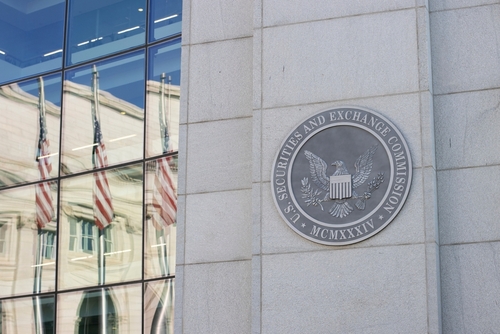Touted by proponents as a way to “enhance and standardize climate-related disclosures by public companies and in public offerings,” a divided Securities and Exchange Commission on March 6 approved new rules extending nearly 900 pages; the Commission, however, didn’t go as far as what it originally had proposed.
 The Commission proposed the rules in March 2022; prior to that, the American Retirement Association submitted a comment letter in June 2021 in response to a Request for Information by the SEC about potential climate-disclosure rulemaking.
The Commission proposed the rules in March 2022; prior to that, the American Retirement Association submitted a comment letter in June 2021 in response to a Request for Information by the SEC about potential climate-disclosure rulemaking.
The final rules—adopted by a vote of 3-2 with Republican Commissioners Hester Peirce and Mark Uyeda voting against the guidance—will require registrants to disclose certain climate-related information in registration statements and annual reports.
More specifically, the final rules require a registrant to disclose, among other things:
- Climate-related risks that have had, or are reasonably likely to have, a material impact on the registrant’s business strategy, results of operations, or financial condition;
- Activities to mitigate or adapt to such risks, including a description of material expenditures incurred and material impacts on financial estimates and assumptions that directly result from such mitigation or adaptation activities;
- Information about the registrant's board of directors' oversight of climate-related risks and management’s role in managing material climate-related risks; and
- Information on any climate-related targets or goals that are material to the registrant's business, results of operations, or financial condition.
Further, to facilitate investors’ assessment of certain climate-related risks, the final rules require disclosure of Scope 1 and/or Scope 2 greenhouse gas (GHG) emissions on a phased-in basis by certain larger registrants when those emissions are material. The Commission ended up removing from the final rule the much-criticized Scope 3 prong related to emissions by their suppliers and distributors.
As to the disclosures, the final rules will require a registrant (including a foreign private issuer) to:
- File the climate-related disclosure in its registration statements and Exchange Act annual reports filed with the Commission;
- Provide the Regulation S-K mandated climate-related disclosures either in a separate, appropriately captioned section of its registration statement or annual report or in another appropriate section of the filing, such as Risk Factors, Description of Business, or Management’s Discussion and Analysis (alternatively, registrants may also incorporate such disclosure by reference from another Commission filing as long as the disclosure meets the electronic-tagging requirements of the final rules); and
- Electronically tag climate-related disclosures in Inline XBRL.
“These final rules build on past requirements by mandating material climate risk disclosures by public companies and in public offerings,” Chairman Gensler said in a statement. “The rules will provide investors with consistent, comparable, and decision-useful information, and issuers with clear reporting requirements. Further, they will provide specificity on what companies must disclose, which will produce more useful information than what investors see today.”
For her part, Commissioner Peirce, in a lengthy dissent, called the rules unnecessary and overly prescriptive. “This rule replaces our current principles-based regime with dozens of pages of prescriptive climate-related regulations. While the Commission has decorated the final rule with materiality ribbons, the rule embraces materiality in name only. The resulting flood of climate-related disclosures will overwhelm investors, not inform them,” Peirce stated.
Added Commissioner Uyeda, who also voted against the rule and had his own lengthy dissent, “The primary financial beneficiaries of today’s rulemaking will be the ESG consultants, auditors, attestation providers, and attorneys who will advise on compliance with the new provisions. Keep in mind that not one dime of money spent on compliance will be used for actual reductions in GHG emissions, and that shareholders will be footing this bill.”
The Commission noted that it considered more than 24,000 comment letters, including more than 4,500 unique letters, submitted in response to the proposed rules.
The final rule will become effective 60 days following publication in the Federal Register. The final rule also includes a phased-in compliance period for all registrants, with the compliance date dependent on the registrant’s filer status and the content of the disclosure.
A four-page fact sheet outlining the new rules can be found here.
The text of the nearly 900-page final rule can be found here.
The American Retirement Association's comment letter is found here.

